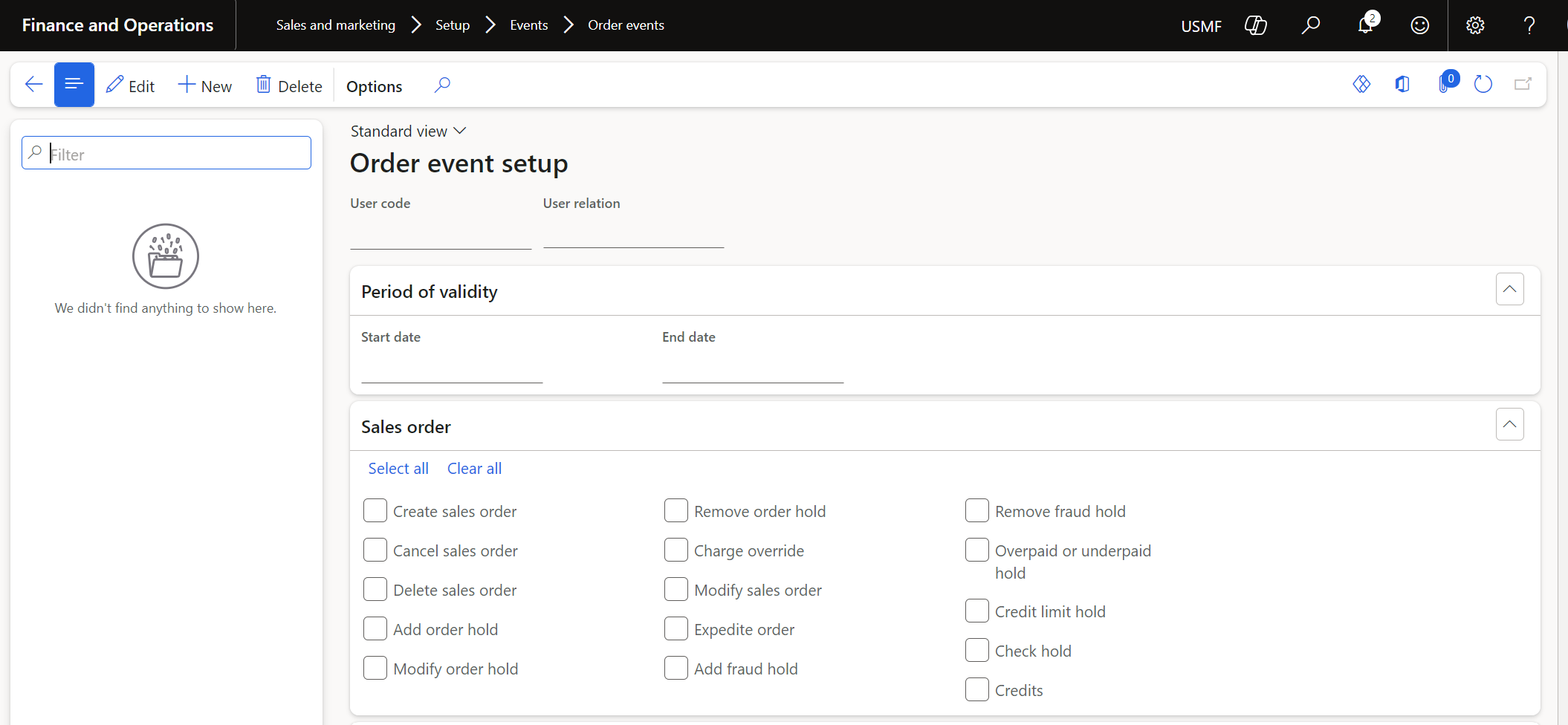Mastering Order Events in Dynamics 365 Finance & Operations


Order events in Dynamics 365 Finance & Operations (D365FO) empower businesses to maintain a detailed record of changes made to sales orders throughout their lifecycle. This robust feature not only provides clear visibility but also enables better auditing, troubleshooting, and process enhancements, making it an important tool for enterprises aiming for operational excellence.
D365FO’s order events are designed to capture a comprehensive history of actions and updates related to sales orders. They record key activities like:
- Generating new sales orders
- Modifying order details (e.g., prices, quantities)
- Revising delivery information
- Canceling or deleting orders
By maintaining an extensive audit trail, businesses can ensure compliance, traceability, and a deeper understanding of their order workflows.
How Do Order Events Work?
Configuration
Before utilizing Order Events, a proper configuration is necessary to specify the events you wish to track:
- Navigate to Sales and Marketing > Setup > Events > Order Events.

- Create a new record by specifying:
- User Code: Identify whether the tracking applies to specific users, user groups, or everyone.
- User Relation: Select the corresponding users or groups to track.
- Start/End Dates: Define the timeframe for monitoring these events.
- Event Types: Choose the activities you want to track, such as “Create Sales Order,” “Modify Sales Order,” or “Cancel Sales Order.”
Capturing Events
Once configured, D365FO systematically records the selected events as they occur in real-time. For example:
- Creating a Sales Order: When a sales rep enters a new sales order, the system logs this as a “Create Sales Order” event, recording details like the origin, time stamp, and user information.
- Updating Order Details: If someone modifies the price or quantity of an item, the system tracks it as a “Modify Sales Order” event, capturing both the original and updated values.
- Canceling Orders: A “Cancel Sales Order” event is generated whenever an order is terminated, safeguarding vital records for future reference.
Reviewing Order Events
Admins or managers can access the logged events using the following pathways:
- For Detailed Orders:
- Open the desired sales order.
- Navigate to View > Order Events in the sales order header ribbon.
- For All Orders:
- Navigate to Sales and Marketing > Inquiries and Reports > History > Order Events to view all recorded events.
Real-World Applications of Order Events
Here’s how order events play out in typical business processes:
Example 1: Creating a New Sales Order
A sales representative initiates a new sales order for a client. D365FO instantly records a “Create Sales Order” event, logging essential details like who created it, when it was created, and the initial order parameters. This log ensures traceability from the order’s inception.
Example 2: Adjusting Order Pricing
If a manager adjusts a product price from $1,900 to $1,800 for a specific order, the system generates a “Modify Sales Order” event. The event captures the change details, including the initial and revised pricing, offering a clear audit trail.
Example 3: Updating Delivery Information
When a customer requests an expedited shipment, and the delivery date is modified, D365FO logs the update as a “Modify Sales Order” event, ensuring all parties have visibility into the adjusted timeline.
Key Benefits of Order Events
Order events provide several advantages for organizations aiming to optimize sales processes:
- Detailed Audit Trail: Record every modification to safeguard accountability and accuracy.
- Enhanced Troubleshooting: Identify the root cause of any discrepancies or issues in sales orders quickly and efficiently.
- Streamlined Processes: Gain valuable insights into your order lifecycle and refine sales workflows to improve overall efficiency.
- Regulatory Compliance: Ensure adherence to legal and corporate audit standards with transparent and well-documented records.
Best Practices for Managing Order Events
While the advantages of order events are clear, proper management is vital to avoid system clutter or performance degradation. Follow these best practices:
- Choose Relevant Events: Focus on tracking events essential to your business operations. Avoid overloading the system with unnecessary records to maintain optimal performance.
- Regular Cleanup: Periodically delete outdated records using the order events cleanup functionality, accessible under Sales and Marketing > Periodic Tasks > Clean Up > Order Events Cleanup. This ensures your system remains efficient and responsive.
Final Thoughts
The Dynamics 365 Finance and Operations’ order events feature offers unmatched visibility in your sales order processes. By capturing every key action, the feature allows organizations to maintain precise records, troubleshoot effectively, and continuously improve business operations.
With proper configuration, regular maintenance, and strategic use, order events can transform how your business approaches sales order management. Whether addressing compliance needs, seeking to streamline workflows, or simply aiming for better customer service, order events in D365FO have the tools to help you succeed.

AI Agent & Copilot Summit NA is an AI-first event to define the opportunities, impact, and outcomes possible with Microsoft Copilot for mid-market & enterprise companies. Register now to attend AI Agent & Copilot Summit in San Diego, CA from March 17-19, 2026.

